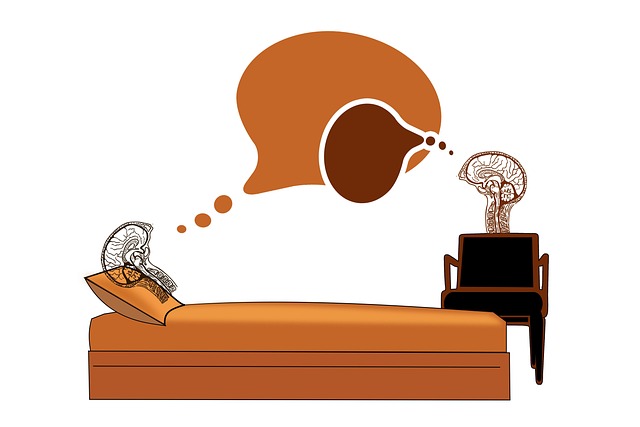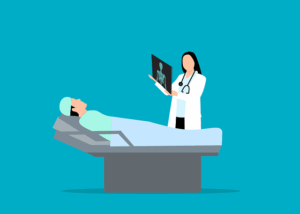Depression, a severe mental health condition, requires professional help from depression therapists. These specialists offer personalized therapy options like CBT, DBT, and IPT, targeting negative thoughts, relationships, and past experiences. Building a strong therapeutic alliance with open communication is vital. Antidepressant medication, combined with lifestyle changes and support systems, enhances recovery alongside depression therapists. Researching qualified therapists online or through healthcare providers ensures specialized care tailored to individual needs.
Depression is a prevalent mental health condition that affects millions worldwide, impacting daily functioning and overall well-being. If you’re struggling with persistent feelings of sadness, hopelessness, or loss of interest, professional help from a depression therapist could be transformative. This comprehensive guide explores various aspects of managing depression, including symptoms, therapy types, building trust with your therapist, coping strategies, medication considerations, support systems, and finding the right specialist to embark on your journey to recovery.
Understanding Depression: Symptoms and Diagnosis

Depression is a common yet serious mental health condition that significantly impacts an individual’s daily life and well-being. It goes beyond feeling sad or upset for a brief period; instead, it involves persistent feelings of sadness, loss of interest in activities once enjoyed, and a range of physical and emotional symptoms. Understanding depression involves recognizing its various symptoms, which can include changes in appetite, sleep disturbances, fatigue, difficulty concentrating, feelings of worthlessness, and recurrent thoughts of death or suicide.
Diagnosing depression typically involves a comprehensive evaluation by qualified healthcare professionals, often including psychiatrists or clinical psychologists. They may use standardized assessment tools and questionnaires to gauge the severity and duration of symptoms. The diagnosis is based on specific criteria outlined in diagnostic manuals, such as the Diagnostic and Statistical Manual of Mental Disorders (DSM-5). Recognizing these symptoms and seeking help from depression therapists is a crucial step towards recovery, offering individuals the support they need to manage their condition effectively.
The Role of Depression Therapists in Treatment

Depression therapists play a pivotal role in helping individuals navigate and overcome their battle with depression. These professionals are equipped with advanced training and expertise in various therapeutic techniques designed to address the complex nature of depression. Through one-on-one sessions, they foster an environment of trust and empathy, encouraging clients to explore underlying causes, challenge negative thought patterns, and develop healthier coping mechanisms.
The therapeutic process involves active listening, where therapists pay close attention to their client’s concerns, experiences, and emotions. They employ evidence-based approaches such as cognitive behavioral therapy (CBT), dialectical behavior therapy (DBT), or interpersonal therapy (IPT) to tailor treatment plans specific to each individual’s needs. By providing support, guidance, and new perspectives, depression therapists empower clients to regain control of their lives and improve overall well-being.
Types of Therapy for Effective Depression Management

When seeking professional help for depression, individuals have several therapy options available. Cognitive Behavioral Therapy (CBT) is a widely recognized and effective approach that focuses on identifying and changing negative thought patterns and behaviors contributing to depressive symptoms. This evidence-based method teaches practical coping strategies and skills to manage emotions and improve overall well-being.
Other therapeutic modalities include interpersonal therapy, which addresses relationship issues and social factors impacting depression, and psychodynamic therapy, delving into unconscious thoughts and past experiences. Additionally, some depression therapists incorporate mindfulness-based practices, such as Mindfulness-Based Cognitive Therapy (MBCT), to help clients develop a non-judgmental awareness of their thoughts and emotions. These diverse therapeutic approaches offer personalized strategies for effective depression management.
Building a Therapeutic Alliance with Your Therapist

Building a strong therapeutic alliance is crucial in the journey towards managing and overcoming depression. This partnership between you and your depression therapist is a key component to successful treatment. During your initial sessions, open communication is essential; share your hopes, fears, and expectations with your therapist. Understanding their approach, active listening skills, and ability to create a safe, non-judgmental space can foster trust.
A good therapist will work collaboratively with you, respecting your autonomy while providing guidance. They should be able to adapt their techniques to suit your unique needs and preferences. This alliance empowers you to actively participate in therapy, increasing the likelihood of engaging with the process and reaping the benefits. Together, you can navigate challenges, set achievable goals, and celebrate milestones along the way towards recovery.
Coping Strategies: Tools and Techniques from Depression Therapists

Depression therapists equip individuals with a suite of coping strategies tailored to their unique experiences. These tools and techniques span various therapeutic approaches, such as cognitive-behavioural therapy (CBT), mindfulness practices, and interpersonal therapy. CBT, for instance, focuses on identifying and challenging negative thought patterns that contribute to depression. Mindfulness encourages individuals to stay present and non-judgmentally aware of their thoughts and feelings, fostering a sense of calm. Interpersonal therapy centres on improving communication skills and resolving relationship issues that may exacerbate depressive symptoms.
Therapists also incorporate techniques like exposure therapy for those with anxiety-related depression, helping them gradually confront feared situations. Additionally, they might suggest lifestyle changes, such as regular exercise, healthy eating, and improved sleep habits, which can significantly enhance mood and overall well-being. These strategies empower individuals to manage their depression effectively, promoting long-term recovery and improved quality of life.
Medication and Depression: When and How to Consider It

For many individuals dealing with depression, seeking professional help is a pivotal step towards recovery. While therapy with depression therapists remains the primary course of action, medication can also play a significant role in managing symptoms. Antidepressant medications are designed to balance neurotransmitters in the brain, which can help regulate mood and emotions. However, it’s essential to remember that these medications aren’t a quick fix; they typically take several weeks to show effects.
Deciding when to consider medication involves a conversation with your healthcare provider or therapist. They will assess your symptoms, medical history, and overall well-being to determine if antidepressants are suitable. This decision is personalized, considering factors like the severity of depression, the presence of co-occurring disorders, and the individual’s response to previous treatments. Regular check-ins during medication management ensure adjustments as needed, fostering a comprehensive approach to overcoming depression alongside depression therapists.
Support Systems: The Importance of Family and Friends

Having a strong support system is immensely beneficial for individuals dealing with depression. Family and friends play a pivotal role in providing comfort, understanding, and encouragement during challenging times. Depression therapists often emphasize the importance of social connections as a key component of recovery. When facing depression, talking openly about feelings with trusted loved ones can help break down barriers and reduce the sense of isolation.
Support systems offer a safe space for individuals to express their emotions without fear of judgment. Friends and family can provide practical assistance, such as helping with daily tasks or accompanying individuals to therapy appointments. Their presence and willingness to listen can significantly boost mood and motivation. Additionally, social activities and shared experiences within these relationships can introduce moments of joy and distraction from depressive thoughts.
Seeking Professional Help: Finding the Right Depression Therapist

Seeking professional help is a crucial step towards managing and overcoming depression. Finding the right therapist can make all the difference in your journey to recovery. The first task is to identify qualified depression therapists who specialize in this area. Many mental health professionals offer various therapeutic approaches, so it’s essential to look for someone whose expertise aligns with your needs.
You might consider researching therapists who have experience treating depression and related conditions. Online platforms or referrals from healthcare providers can help you locate reputable specialists. During your initial consultation, assess their approach, the type of therapy offered, and whether you feel comfortable discussing personal matters. Finding a therapist with whom you connect on a personal level is vital for establishing trust and fostering an effective therapeutic relationship.
